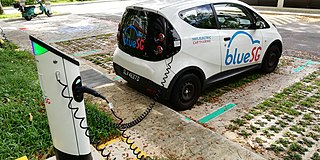
Clean technology, in short cleantech or climatetech, is any process, product, or service that reduces negative environmental impacts through significant energy efficiency improvements, the sustainable use of resources, or environmental protection activities. Clean technology includes a broad range of technology related to recycling, renewable energy, information technology, green transportation, electric motors, green chemistry, lighting, grey water, and more. Environmental finance is a method by which new clean technology projects can obtain financing through the generation of carbon credits. A project that is developed with concern for climate change mitigation is also known as a carbon project.

Joseph J. Romm is an American researcher, author, editor, physicist and climate expert, who advocates reducing greenhouse gas emissions to limit global warming and increasing energy security through energy efficiency and green energy technologies. Romm is a Fellow of the American Association for the Advancement of Science. In 2009, Rolling Stone magazine named Romm to its list of "100 People Who Are Changing America", and Time magazine named him one of its "Heroes of the Environment (2009)", calling him "The Web's most influential climate-change blogger".
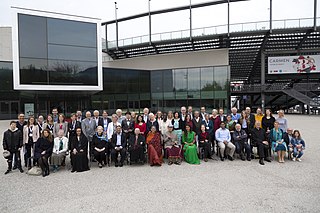
The World Future Council (WFC) is a German non-profit foundation with its headquarters in Hamburg. It works to pass on a healthy and sustainable planet with just and peaceful societies to future generations.

Mark Diesendorf is an Australian academic and environmentalist, known for his work in sustainable development and renewable energy. He currently teaches environmental studies at the University of New South Wales, Australia. He was formerly professor of environmental science and founding director of the Institute for Sustainable Futures at the University of Technology, Sydney and before that a principal research scientist with CSIRO, where he was involved in early research on integrating wind power into electricity grids. His most recent book is Sustainable Energy Solutions for Climate Change.

Renewable energy commercialization involves the deployment of three generations of renewable energy technologies dating back more than 100 years. First-generation technologies, which are already mature and economically competitive, include biomass, hydroelectricity, geothermal power and heat. Second-generation technologies are market-ready and are being deployed at the present time; they include solar heating, photovoltaics, wind power, solar thermal power stations, and modern forms of bioenergy. Third-generation technologies require continued R&D efforts in order to make large contributions on a global scale and include advanced biomass gasification, hot-dry-rock geothermal power, and ocean energy. In 2019, nearly 75% of new installed electricity generation capacity used renewable energy and the International Energy Agency (IEA) has predicted that by 2025, renewable capacity will meet 35% of global power generation.

Non-Nuclear Futures: The Case for an Ethical Energy Strategy is a 1975 book by Amory B. Lovins and John H. Price. The main theme of the book is that the most important parts of the nuclear power debate are not technical disputes but relate to personal values, and are the legitimate province of every citizen, whether technically trained or not. Lovins and Price suggest that the personal values that make a high-energy society work are all too apparent, and that the values associated with an alternate view relate to thrift, simplicity, diversity, neighbourliness, craftsmanship, and humility. They also argue that large nuclear generators could not be mass-produced. Their centralization requires costly transmission and distribution systems. They are inefficient, not recycling excess thermal energy. The authors believed that nuclear reactors were less reliable and take longer to build, exposing them to escalated interest costs, mistimed demand forecasts, and wage pressure by unions.
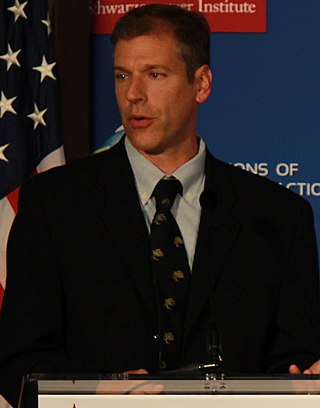
Daniel Merson Kammen is an American scientist, renewable energy expert, and former government figure. He currently serves as Distinguished Professor of Energy in the Energy and Resources Group at the University of California, Berkeley, and holds a dual appointment at the university's Energy and Resources Group and the Goldman School of Public Policy.
The American Council for an Energy-Efficient Economy (ACEEE) is a nonprofit, 501(c)(3) organization. Founded in 1980, ACEEE's mission is to act as a catalyst to advance energy efficiency policies, programs, technologies, investments, and behaviors in order to help achieve greater economic prosperity, and environmental protection.
Thomas R. Casten is an American businessman, author, and activist known for his work on industrial energy recycling. Since 1977, Casten has founded and managed numerous companies and organizations associated with combined heat and power, decentralized energy, and waste energy recovery.
Carbon lock-in refers to the self-perpetuating inertia created by large fossil fuel-based energy systems that inhibits public and private efforts to introduce alternative energy technologies. Related to the concept of technological lock-in, the concept is most used in relation to the challenge of altering the current energy infrastructure to respond to global climate change.

The Dirty Energy Dilemma: What’s Blocking Clean Power in the United States is a 2008 book by academic Benjamin K. Sovacool, published by Praeger. In the book, Sovacool explores problems with the current U.S. electricity system and ways to overcome them.
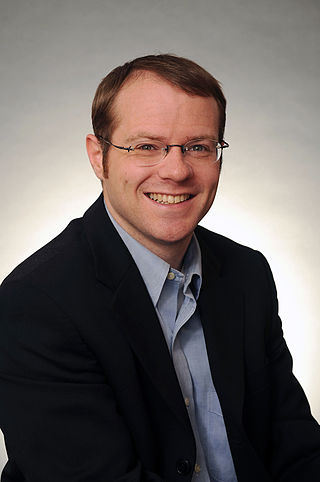
Benjamin K. Sovacool is an American academic who is director of the Institute for Global Sustainability at Boston University as well as Professor of Earth and Environment at Boston University. He was formerly Director of the Danish Center for Energy Technology at the Department of Business Development and Technology and a professor of social sciences at Aarhus University. He is also professor of energy policy at the University of Sussex, where he formerly directed the Center on Innovation and Energy Demand and the Sussex Energy Group. He has written on energy policy, environmental issues, and science and technology policy. Sovacool is also the editor-in-chief of Energy Research & Social Science.

The energy policy of the Obama administration was defined by an "all-of-the-above" approach which offered federal support for renewable energy deployment, increased domestic oil and gas extraction, and export of crude oil and natural gas. His presidency's first term was shaped by the failure of his signature climate legislation, the American Clean Energy and Security Act, to pass, and then climate and energy disasters including the Deepwater Horizon oil spill in 2010 and then Hurricane Sandy, which took place during the 2012 election. In his second term, Obama lifted the ban on crude oil exports and approved liquified natural gas exports; his planned regulatory approach to reducing greenhouse pollution in the electricity sector, the Clean Power Plan, was blocked by the U.S. Supreme Court.
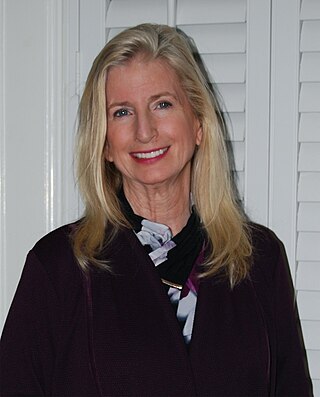
Marilyn A. Brown is a Regents' and Brook Byers Professor of Sustainable Systems in the School of Public Policy at the Georgia Institute of Technology. She joined Georgia Tech in 2006 after 22 years at Oak Ridge National Laboratory, where she held various leadership positions. Her work was cited by President Clinton as providing the scientific justification for signing the 1997 Kyoto Protocol. With Eric Hirst, she coined the term "energy efficiency gap" and pioneered research to highlight and quantify the unexploited economic potential to use energy more productively.

Contesting the Future of Nuclear Power: A Critical Global Assessment of Atomic Energy is a 2011 book by Benjamin K. Sovacool, published by World Scientific. Sovacool's book addresses the current status of the global nuclear power industry, its fuel cycle, nuclear accidents, environmental impacts, social risks, energy payback, nuclear power economics, and industry subsidies. There is a postscript on the Japanese 2011 Fukushima nuclear disaster. Based on detailed analysis, Sovacool concludes "that a global nuclear renaissance would bring immense technical, economic, environmental, political, and social costs". He says that it is renewable energy technologies which will enhance energy security, and which have many other advantages.

Climate Change and Global Energy Security: Technology and Policy Options is a 2011 book by Marilyn A. Brown and Benjamin K. Sovacool, in which the authors offer detailed assessments of commercially available technologies for strengthening global energy security and climate change mitigation. They also evaluate the barriers to the deployment of these technologies and critically review public policy options for their commercialization. Arguing that society has all the technologies necessary for the task, they discuss an array of options available today, including high-efficiency transportation, renewable energy, carbon sequestration, and demand side management.
John A. "Skip" Laitner is an American-born economist, author and lecturer. He focuses on developing a more robust technology and behavioral characterization of energy efficiency resources for use in energy and climate economic policy models.

Janelle Knox-Hayes is the Lister Brothers Associate Professor of Economic Geography in the Department of Urban Studies and Planning at the Massachusetts Institute of Technology. Her research and teaching explore the institutional nature of social, economic and environmental systems, and the ways in which these are impacted by changing socio-economic spatial and temporal dynamics.

Ecomodernism is an environmental philosophy which argues that technological development can protect nature and improve human wellbeing through eco-economic decoupling, i.e., by separating economic growth from environmental impacts.















